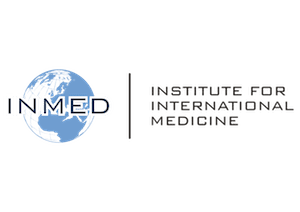Forum Replies Created
-
AuthorPosts
-
August 21, 2022 at 10:46 pm in reply to: International Clinical Health Week 1 Discussion Forum #49174
 Gabriel CreswellParticipant
Gabriel CreswellParticipantQuestion #1: What system-wide changes, in your opinion, would most successfully increase world-wide food security?
In my opinion, it is important to support locally grown food. By doing so, you support the local economy and there is less importing of goods that has to be done. The costs associated with importing can instead be focused on getting more food. I also believe in educating everyone on the importance of growing your own food and becoming self-sufficient. Farming isn’t just for farmers. Education on the most nutrient dense fruits, vegetables, and grains to grow would also be beneficial, as well as agricultural practices that people could implement to increase their crop yield. If everyone that had access to land grew their own food, there would be less of a reliance on imports. If we were able to decrease reliance on imports, supply chain disruptions like what we saw (and are still seeing) from the pandemic will have less of an impact on food markets. Organizations and governments could also create programs to lease unused land to those without any for the purpose of farming. Subsidizing farming costs could be another way to improve agricultural production.
Despite everyone’s best efforts, there will inevitably be difficult times. Having a plan in place for these difficult times by local and national governments can help alleviate some of the burden. Implementing a plan for storing food for future use when times are good is important. More education on what can be stored and the processes to do so could also be of great benefit.Question 2: What do you believe are the most substantial barriers to global measles elimination, and how can these be overcome?
I think a lack of understanding of the severity of measles is a barrier. Another aspect of this barrier is misinformation. Education on the importance of immunizing against measles could help limit the number of people who refuse or are ignorant of vaccinations for their children. It could also prevent future resurgences from occurring in places with already good vaccination rates. Another barrier is the challenges of monitoring who is vaccinated and who isn’t. Improving the systems that track vaccination status could yield better vaccination rates and potentially provide unique insight into the reasons that certain groups are unvaccinated. Partnering with local leaders of organizations, churches, and governments could help bridge the gap between cultures and increase vaccination rates as well. Gabriel CreswellParticipant
Gabriel CreswellParticipantHi, my name is Gabriel Creswell. I am currently attending medical school through ATSU-KCOM. I am in my 3rd year and just started doing clinical rotations, my first one being in pediatrics. Before medical school I worked as a scribe in the specialties of ENT, pulmonology, and sleep medicine.
I chose to take this course because I want to become more involved in global health. My interest in global health began when I spent 2 years in the Philippines on a proselyting mission and had the opportunity to see some of the healthcare facilities there. I hope to participate in one or more of the international service learning experiences upon completion of this course and the rest of my core rotations.
Right now I am interested in family medicine. I plan to complete a 3 year residency at the end of my medical school training, and then from there begin practicing in a rural underserved area in both a hospital and clinic setting. I also plan to serve medical mission trips where possible.
-
AuthorPosts
